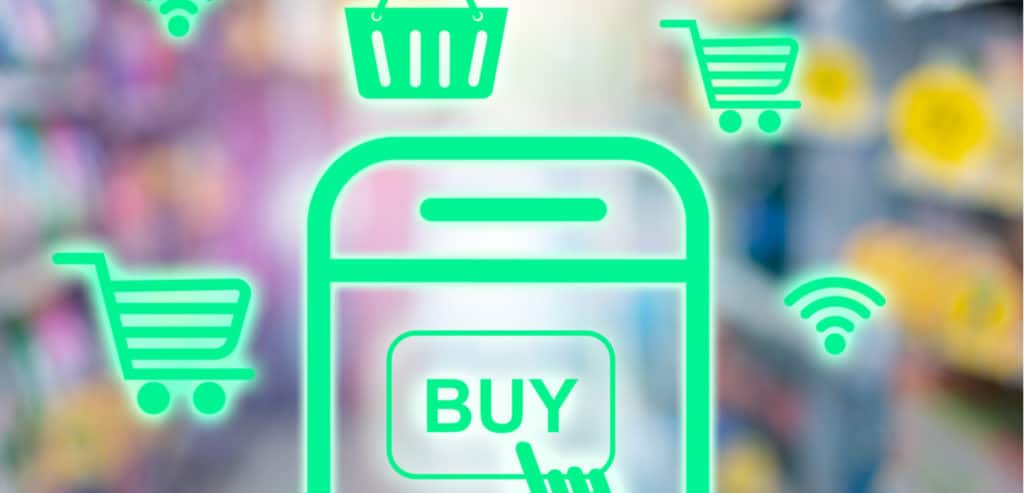
Ecommerce is gaining new fans during the coronavirus as those who rarely or never shopped on the web before the crisis have done so to avoid stores, a June report from Accenture finds.
The Accenture report is based on a survey of 7,872 consumers in 18 markets around the globe conducted May 5–11.
Additionally, 29% of consumers said they feel comfortable shopping at a nonessential retail store, and the same percentage said they feel comfortable shopping at a shopping center. A higher 40% feel comfortable shopping at a grocery store or pharmacy.
Quite a lot has been going on:
How SMEs new to eCommerce can streamline the payments process - Essential Retail

During the Covid-19 pandemic, consumers are increasingly shopping online and, for many smaller, independent businesses who have previously relied on in-store sales for income, navigating a new digital landscape can prove difficult.
Over a third of SMEs have moved their operations online for the first time in April. In doing so, they are now competing against larger, more established businesses for the nation’s digital spend.
One of the biggest challenges in making the switch to eCommerce is getting set up and having the right tools and processes in place. From a payments perspective, this means having the optimum gateway and acquiring facilities and configuring them to maximise acceptance rates.
Drag-and-drop Ecommerce Tools Are on the Rise | Practical Ecommerce

Drag-and-drop software tools from Shogun, BigCommerce, and Wix are examples of services that help non-technical users build attractive online stores.
* * *
One could argue that enterprise and high-performance platforms have been the most noteworthy. The former is associated with the largest companies and, therefore, the most money. The latter represents newer approaches to software development and deployment that may provide advantages in functionality at a low cost.
Ecommerce Round Up: How Social Media Platforms And Tech Brands Are Implementing Online Shopping
Social media platforms and ecommerce are a perfect match, particularly during a time when social media usage is increasing and consumers are shopping online more. Facebook, Instagram and YouTube are creating more ways for consumers to buy as they scroll through their feeds and watch videos, and brands are taking advantage of these improved customer acquisition opportunities and changing consumer behaviors .
* * *
Insiders see the move from YouTube as part of Google’s ongoing strategy to be more competitive in ecommerce, particularly since YouTube is a major source of sales growth for Google, with a 33% jump in ad sales during Q1. For brands, the flexibility of YouTube’s direct response ads, and the available reporting, makes them a good fit especially for direct-to-consumer (DTC) brands and for brands launching new products.
And here's another article:
US Ecommerce Companies Ask Govt To Defer Payment Of Digital Tax

Previously, foreign companies had asked the government to charge levy only on facilitation fee for each transaction
* * *
American ecommerce companies like Amazon and Walmart-owned Flipkart have asked the government to defer payment of the 2% equalisation levy on digital transactions, the country's new digital tax, the first instalment of which was due on July 7.
The Board of directors of the US-India Strategic Partnership Forum (USISPF), in a letter to Finance Secretary Ajay Bhushan Pandey, complained about the lack of clarity regarding the provisions, and technical difficulties faced by companies in making the payment.
Jorge Zu�iga Blanco discusses proven eCommerce growth strategies | WebWire

This will assist them with concentrating everything about an item, which thus will empower them to settle on an educated choice without thinking twice about it a while later - helping you stay away from grievances and negative surveys.
Web-based selling, or digital promoting, is the craftsmanship and strategies of getting a greater amount of your advanced store�s guests to interface with your image, add things to their shopping cart and, in the long run, get them buying � Instead of physical shopping, internet shopping is intangible and gives a great deal of mystery with respect to clients.
Ecommerce firms want more time from govt to display country of origin on product
Larger players like Amazon and Flipkart requested a timeline of three months to execute the proposal Another set of players requested DPIIT to implement the proposal in a graded manner
Horizon Media's Night Market Creates First Ever E-Commerce Upfronts

Night Market Partners With Amazon, Google, Facebook, Instacart, Walmart (WMG) and Promote IQ/Kroger to Develop Upfront Focused Entirely on the Newest Trends and Most Effective eCommerce Strategies
In partnership with Amazon, Google, Facebook, Instacart, Walmart (WMG) and PromoteIQ/Kroger, Night Market will provide five days of virtual workshops, from July 13-17, filled with exclusive content focused on how brands can drive improved business outcomes with more effective approach to their eCommerce strategies.
Happening on Twitter
NEW: severe storms in eastern Montana this evening with occasional mothership supercell characteristics from Lame D… https://t.co/uvTiMwQUIq ReedTimmerAccu (from Golden, CO) Wed Jul 08 04:34:29 +0000 2020

No comments:
Post a Comment